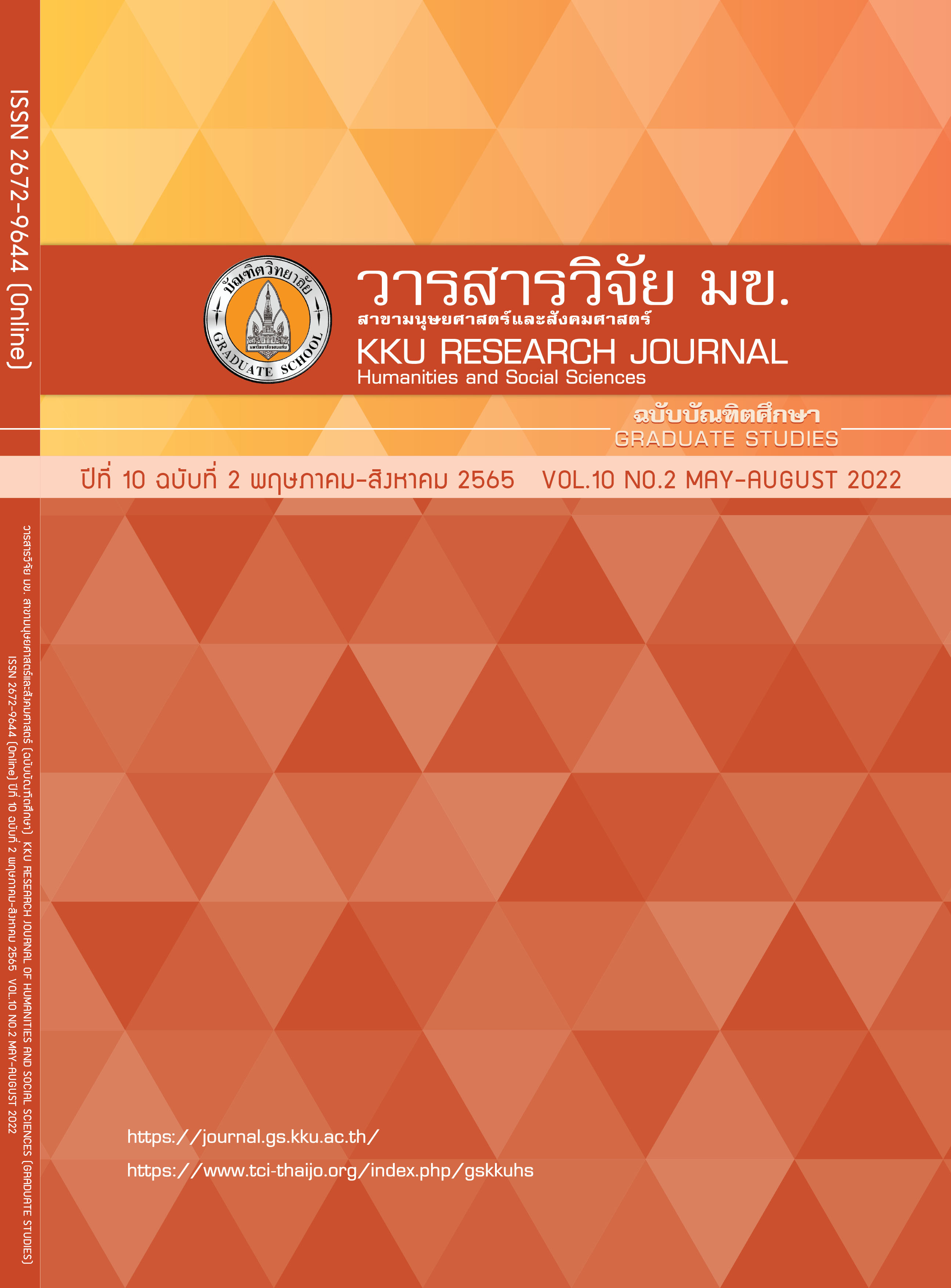World of Work and Employability: A Case Study of Generation Z – Graduates
Keywords:
World of Work, Employability, Generation ZAbstract
This research aims to study the expectation towards generation Z’s employability from the perspective of employers and the new graduates. Data were collected by interviewing experts and surveying the fourth-year students. The results indicated that employability of generation Z was not mainly about the knowledge, but it was focused on skills and abilities. The employers expected the generation Z – new graduates to develop their presentation and communication skills. In addition, they expected the new graduates to be more patient in working process. Generation Z, however, perceived that they were already be patient. This is due in part to different interpretations between the employers and new graduates.
References
Arthur MB, Rousseau DM. A Career Lexicon for the 21st Century. Academy of Management Executive. 1996; 10(4): 28-39.
Bagshaw M. Employability-Creating A Contract of Mutual Investment. Industrial and Commercial Training. 1997; 29(6): 187-189.
Baruch Y. Career Development in Organizations and Beyond: Balancing Traditional and Contemporary Viewpoints. Human Resource Management Review. 2006; 16(2): 125-138.
Eby LT, Butts M, Lockwood A. Predictors of success in the era of the boundaryless career. Journal of Organizational Behavior. 2003; 24(6): 689-708.
Fugate M, Kinicki AJ, Ashforth BE. Employability: A Psycho-Social Construct, Its Dimensions, and Applications. Journal of Vocational Behavior. 2004; 65(1): 14-38.
Garavan T. Employability, the emerging new deal? Journal of European Industrial Training. 1999; 23 (1): 1-5.
Hite L, McDonald K. Careers after COVID-19: challenges and changes. Human Resource Development International. 2020; 23(4): 427-437.
International Labour Organization. ILO Monitor: COVID-19 and the world of work. Sixth edition. [Internet]. 2020 [Cited 2020 August 12]. Available from: https://www.ilo.org/global/topics/ coronavirus/lang--en/index.htm
International Labour Organization. World of Work Magazine. [Internet]. 2020 [Cited 2020 August 12]. Available from: https://www.ilo.org/global/publications/world-of-work-magazine/lang--en/index.htm
McKinsey Global Institute. What 800 executives envision for the post pandemic workforce. [Internet]. 2021 [Cited 2021 July 10]. Available from: https://www.mckinsey.com/featured-insights/future-of-work/what-800-executives-envision-for-the-postpandemic-workforce. [Internet].
National Statistical Office. The Labor Force Survey Whole Kingdom. [Internet]. 2020 [Cited 2020 August 14]. Available from: https://www.nso.go.th/sites/2014/DocLib13; 2020. Thai.
World Economic Forum. The Future of Jobs Report. [Internet]. 2020 [Cited 2021 July 10]. Available from: http://www3.weforum.org/docs/WEF_Future_of_Jobs_2020.pdf. [Internet].
Zabusky SE, Barley SR. Redefining success: ethnographic observations on the careers of technicians. In P. Osterman (Ed.). Broken ladders. New York: Oxford University Press; 1996. pp.185-214.
Downloads
Published
How to Cite
Issue
Section
License

This work is licensed under a Creative Commons Attribution-NonCommercial-NoDerivatives 4.0 International License.




